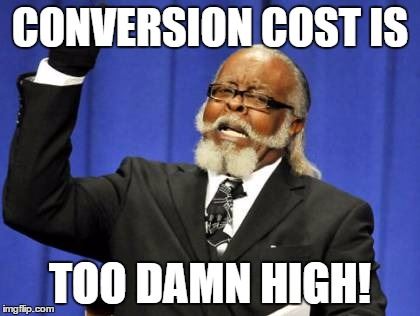Featured Image - "Miss South Carolina Powerset Parse" by official_powerset, used under BY SA / Dropped Quality to 80% from original
I've run into situations where I had to parse a number into digits.
An easy way to do this is to convert a number into a string and returns a character array, and then convert each character into a number
When dealing with large sets of long numbers, it simply is not optimal.
There is a simple way to convert a number into digits, which requires a simple math.
Given an integer "val =213", one might consider converting it to a string, breaking it to a character array and convert each character into an integer (it's so simple in LINQ, it's just tempting to implement it this way).
1private static List<int> GetDigitsUsingConversion(int val)2{3 return val.ToString().ToCharArray().Select(c => (int) c).ToList();4}

The cost of type conversion from an integer to a string, to an array, and then back to integer is too high.
Now let's take a look at another way using a simple math.
Given an integer 213, if you
- divide it by 1 and mod 10, you get 3
- divide it by 10 and mod 10, you get 1
- divide it by 100 and mod 10, you get 2
If you look at the returned result, it's each digit returned in reverse order. There is a useful data structure, for holding data in reverse order, Stack.
An algorithm is fairly simple.
While the given number is greater than 0, divide it by 10^digit, put the digit into a stack, and lastly return the stack as a list.
1private static List<int> GetDigits(int val)2{3 Stack<int> stack = new Stack<int>();4
5 int number = val;6 while (number > 0)7 {8 var digit = number % 10;9 stack.Push(digit);10
11 number /= 10;12 }13
14 return stack.ToList();15}
During each iteration, "number" is divided by 10 so it is equivalent to dividing by 10^digit.
I did a simple benchmarking (contrived but works for a simple demo) and the one requiring a type conversion to a string ran about 2x as long.
1private const int UPTO = 1000000;2
3public static void Main(string\[\] args)4{5int val = 123456789;6
7 Stopwatch watch = new Stopwatch();8
9 watch.Start();10 for (int i = 0; i < UPTO; i++)11 {12 List<int> digits = GetDigits(val);13 }14 watch.Stop();15 Console.WriteLine("GetDigit took {0}ms", watch.ElapsedMilliseconds);16
17 watch.Start();18 for (int j = 0; j < UPTO; j++)19 {20 List<int> digits2 = GetDigitsUsingConversion(val);21 }22
23 watch.Stop();24 Console.WriteLine("GetDigitsUsingConversion took {0}ms", watch.ElapsedMilliseconds);25
26}27
28Result:29
30GetDigit took 754ms31GetDigitsUsingConversion took 1468ms
The source code is available on GitHub.
Conclusion
By using simple math, you can extract digits from a number.
It requires no type conversion thus saving run time.